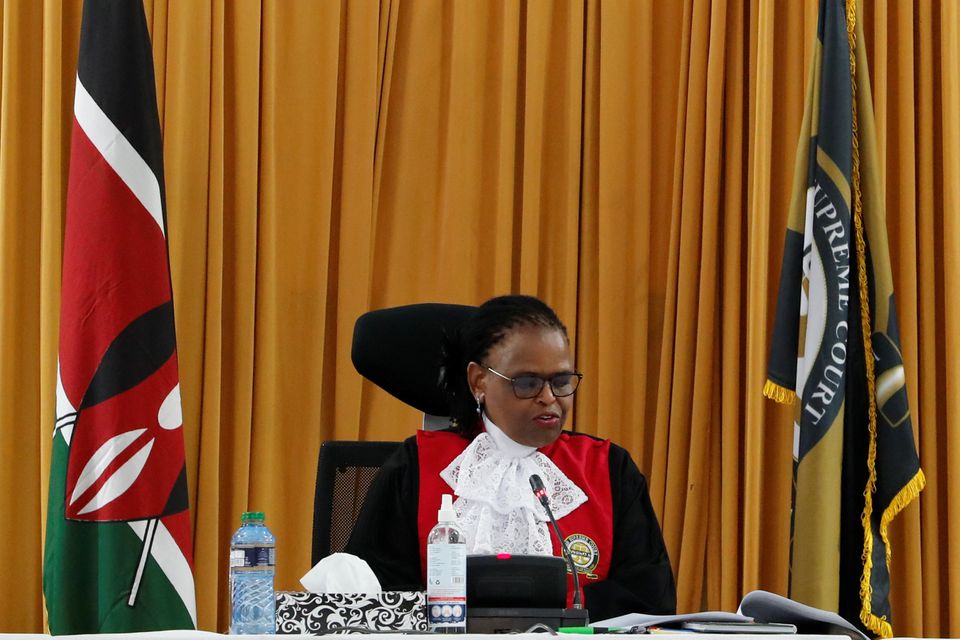NAIROBI, (Reuters) – Kenya’s Supreme Court on Monday upheld the Aug. 9 election of William Ruto as president in a unanimous decision, Chief Justice Martha Koome said in a scathing judgement that swept aside opposition leader Raila Odinga’s accusations of cheating.
“This is a unanimous decision of the court … This court upholds the election of the first respondent (William Ruto) as the president-elect,” Koome, who heads the seven-member court, said during a televised ruling.
Ruto, 55, has been serving as outgoing President Uhuru Kenyatta’s deputy since 2013 but fell out with Kenyatta after the last election. Kenyatta formed an alliance with his long-time rival Odinga instead.
Ruto, a former roadside chicken-seller whose campaign defeated Kenya’s two most powerful political families, takes the helm of a Western ally in an unstable region, which also hosts the regional headquarters of many global companies and organisations.
Kenya has itself seen repeated instances of deadly election-related violence, often along ethnic lines. Citizens are watching anxiously for Odinga’s first address, to see if he calls for protests or accepts the verdict, as he has previously promised.
Koome’s judgement left no ambiguity about the court’s opinion of the key arguments brought by Odinga’s team and other complainants, whose cases were combined with Odinga’s.
She dismissed two affidavits alleging that polling stations results forms had been tampered with as “double hearsay” and two others as containing forgeries. Another was described as “no more than hot air … a wild goose chase”.
“Some of the (computer) logs presented as evidence … showed that they were either from logs arising from the 2017 election or were outright forgeries,” she said.
Koome even raised the possibility of perjury, pointedly saying that two people who filed affidavits allegedly on behalf of polling stations agents had not spoken to the agents and attached falsified forms to their affidavits.
“Swearing to falsehoods is a criminal offence,” she told the court.
While she upheld the result announced by the Independent Electoral and Boundaries Commission, she did call for reforms, saying that a public split between the commissioners had undermined public confidence.
Four of the seven election commissioners publicly disowned the result minutes before it was formally announced on the grounds the tallying process was opaque. The dissident commissioners had previously participated in the tallying, and publicly announced results without raising any concerns, she said.
“No evidence was produced to show that the chairperson of the IEBC and staff were part of the alleged conspiracy,” she said in her decision.
“Are we to nullify an election on the basis of a last minute boardroom rupture, the details of which remain scanty?”
Ruto will be sworn in as Kenya’s fifth president at a time when the East African nation faces several challenges including billions of dollars in loans and the soaring costs of basic commodities such as food and fuel.
Kenya’s Supreme Court Chief Justice Martha Koome presides to deliver the ruling on a petition seeking to invalidate the outcome of the recent presidential election, at the Supreme Court in Nairobi, Kenya September 5, 2022. REUTERS/Thomas Mukoya






